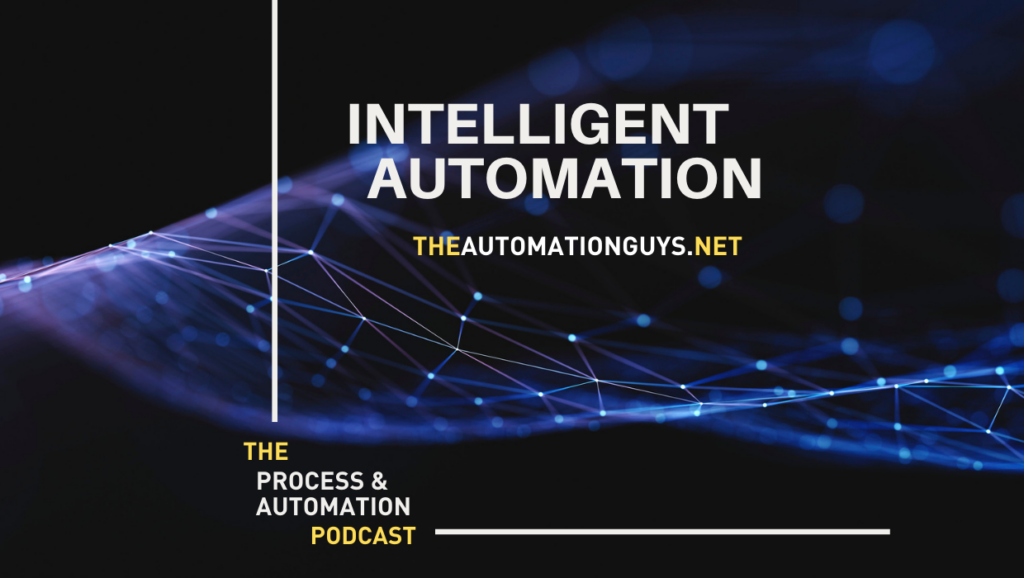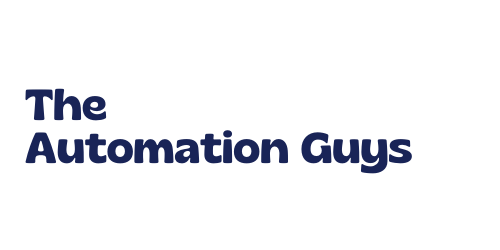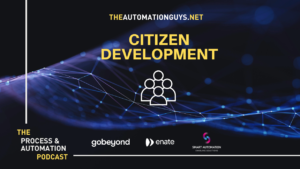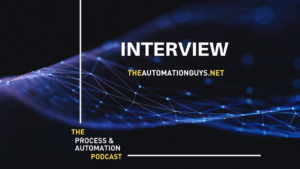Blog

In this episode The Automation Guys do a deep dive into HR automation and how tech can transform every day manual tasks, such as employee on-boarding and leave management to liberate employees and refocus efforts.
Share This Post
Episode Transcript
Hello, and welcome to another episode of the process and automation podcast. Yeah, generally we discuss all things processing automation with many people each day from all sorts of departments and companies. And more recently we had the pleasure to dive deeper into the topic of HR automation also called HR for zero.
So. Yeah. And so that’s, that’s why we think it will be great to cover HR automation more in depth again. Um, so we had a, we had a podcast interview a while back was to get people on HR automation. Uh, yeah. Today we want to share what we think is, um, or what edge automation S and how it can help your departments or your department HR department, or your company.
So let’s, um, jump on. Yeah, as you know, the human resources department is, uh, it’s a very crucial, um, but not really often, uh, to appreciate it. So just, just there needs to function, but it is a component really of any organization. And by taking charge of employee recruitment, onboarding, training, management, disputes, all that stuff, HR plays an essential role, uh, in, in really ensuring.
That that, um, resources or staff teams are working at peak efficiency. So it’s, it’s really, really important and it should have real, real, real efficiency, uh, in, in every step. But what can you do to make the HR department more efficient? So that’s what we cover here. What can you do to be more productive, more cost-effective and this is where HR automation really comes in and, uh, Yeah, we will look at the benefits and use cases in detail.
Um, Arno, what do you think, or maybe you should before, before we go into the benefits, should we do a quick summary on, on HR automation on its own? Yeah, I think it’s probably worthwhile listen this, um, you know, to answer the, the question, um, I think everybody knows what’s HR. Um, um, possibly not everybody knows.
What’s HR automation. And, you know, HR automation as the name obviously suggests is, um, you know, the automation of business activities commonly performed by, uh, organizations, human resources dependent. So, if you think about all those activities or many of them, what we do is we inject some automation and of course we get atrial automation, but you know, more specifically, um, HR automation makes use of a very specialized applications and technologies that can before.
Um, you know, manual activities at speeds and accuracy that is, is, is much higher than, than, than what a human can do. And, um, you know, according to a, uh, some analysis that, you know, the McKinsey global Institute, uh, done, uh, quite recently, 56% of the so-called hire to retire. HR processes. These are processes to relate it to an employee’s career or to company.
So all of this can be automated using current technologies on the market, so that that’s more than half of all the processes within side, the HR can be automated. Um, of course, you know, it is important to emphasize that, um, you know, HR automation is, is only intended to supplement, uh, I guess enhance the work of your existing HR department and, um, you know, at this stage it’s, it’s, it’s not really possible for HR automation to, to entirely replace, um, I guess, uh, a human employee.
It is more just to, to, um, take some of those, I guess, um, standard repetitive mundane tasks. Um, you know, from, from human employees that, that works with instance. Yeah. You mentioned the high volume, repetitive tasks. So we, we had recently a conversation was a startup. Um, so, um, they, they’re not a small company anymore, but they had this typical startup phase from, uh, maybe 30 employees receiving series a investment and they had to find.
150 new employees was in six months. And if you are not used to that kind of volume, like in the startup, doing all that stuff manually going through the onboarding, uh, checking all the documents, all that stuff, you can imagine the UHR department, you would need to hire plenty of HR people if you’re not automating.
So, so if you, if you look at these 50% or during your onboarding, maybe even more steps, uh, yeah, it will be a tremendous. If some automation will be in there. So, so, um, I think that’s a good segue into the benefits of HR automation. Yeah. So, uh, the most important benefit perhaps, uh, of HR automation is that it saves employees a great deal of time and efforts.
So by all the manual tasks are not mentioned by automating HR tasks, you can remove. These tedious manual items, um, from, from the employee’s inbox, this, um, this really frees up time to focus on the really important stuff. Um, so like the real face-to-face conversations you might do to have a time for, um, or you need, need to have time for, um, um, if there’s some problems and like really, really big problems with maybe employees grievance or something.
So performance related activities. Um, yeah, so it’s really good to, to do, um, uh, to, to get the automation and on, on these, um, repetitive and mindless tasks, really, and, uh, automation makes your, your overall business process more predictable, more streamlined, transparent, and more efficient. So if you have that high volume, like I mentioned earlier, um, yeah, so you can really achieve that.
Yeah. And, uh, and a big, big part of onboarding also is, um, know. You’re human workers are making mistakes and that could have a huge impact on sort of the onboarding experience. So onboarding is just one example of a process, but, um, so if you, for example, and you start and the HR department is making mistakes and putting information wrong, um, and it’s just delaying sort of the onboarding and making the ex onboarding experience less, less enjoyable.
Um, yeah, it’s not really good. So the automation can, can make sure everything. Correct on time, uh, without friction. And, um, yeah, so that’s, that’s sort of a key, key benefit there. So, um, yeah, so I think the next thing which we could look at is the technology, um, and, you know, You know, that McKinsey report mentioned that the technology to automate that 50% plus exists today.
So I think it’s probably worth our listeners just to, to, to, to really just look at the HR automation trends what’s out there. Um, you know, with inside the broader field of HR automation, you know, what are the technologies at play? And of course the first one is artificial intelligence and, you know, kind of subfields like machine learning as well.
And, and these are critical, um, to, to HR automation. And of course broadly the goal of AI is to simulate human intelligence. Um, with inside computers to make them think and function and behave the same way that humans can. So, um, you know, so all of all of these AI, uh, and cognitive technologies are out there, um, are the built into platform or commodity base to subscribe to, um, it is mature.
So that’s something that is obviously a massive trend with inside the HR automation space. The next one is process mining, um, and that’s the. Um, of, of, of mining data with insight, your it data. So event log databases, audit, audit trails, and really identifying trends in your data and methods for improving them.
Um, now Sasha myself have been talking quite a lot about process mining. It’s quite a large topic, but it is a way to unlock some of those potential processes. And in this instance within HR that could benefit from automation and the next one is chatbots. And again, chatbots are intelligent software agents, like virtual agents that can communicate with, with end users in a human like manner.
And, you know, they could help these infuses to answer questions of problem. And, you know, in many cases, chatbot can even replace the need to speak to a human agent. Um, and again, you know, according to IBM. Chat bots can answer up to, uh, 80% of a user’s routine query by themselves. So again, all of the list, very trendy chatbots.
We talk a lot about chatbots, uh, very relevant in, in HR automation. Self-service portals. How many lever I got left? What’s the HR policy on what you know, working from home. Um, so all of these things can, can, can be serviced using. Uh, chatbot technology. The fourth one is of course, robotic process automation or RPA, and, you know, robotic process automation users, so-called robotic software workers, uh, who can perform in a wide range of these HR tasks with independence.
Um, autonomy. So RPA works best to, you know, automate very highly structured, repetitive time-consuming manual activities. And we talk a lot about RPA, you know, Very very big space for RPA, with insight, um, HR automation as well. And then of course, we’ve got our low code automation and also smart digital process automation.
And of course, of course, low code platforms enable even non-technical employees to build very robust production, ready software application to suit their needs and fulfill particular gaps. And, and of course, instead of waiting for software. Development teams to, to, to, to code software by hand, low code tools, empower users to sort of take these matters into their own hands and, and drive digital transformation.
And again, with inside HR automation, all of the use cases that you might find a low code automation platform is, is really in my opinion, a go-to thing for, for very quick, rapid roll. Off of applications for four H HR automation and then digital process automation, you know, that that’s similar to RPA, but this is typically larger in scope where it sort of focuses on the entire process and the entire workflow within inside your, your HR automation.
So onboarding is a good example. There’s, uh, a larger process there where. They might be tasks that’s assigned to humans. They might be tasks that are assigned to robots. And that kind of just gives you that sort of holistic view of your process. So again, DPA, um, uh, platforms, the ambiance and, and then texts and the net calls help you to map those into end processes out and automate those.
I guess the question is. Which tasks can we automate them? Is that that’s probably quite a, a burning question on everybody’s mind estimates. Yeah. So all these end to end process you mentioned, um, uh, in HR, um, can be, can be automated. I hadn’t in some of the more prominent ones. Yeah. So Arno disgusted technologies, which are available.
So now let’s look at the most prominent ones. Um, so recruitment is a big one and a very time consuming one for, for companies. So you could, you could automate, um, posting job advertisements, screening, resumes, and CVS sending pre-interview assessments. Um, identifying out of that may with AI, identifying promising candidates, sending all the relevant emails at the right time, at the different stages of the recruitment process.
So it’s, it’s really, really helpful. Um, and are there lots of companies out there? Who say I’m doing this with email and XL. That’s absolutely fine. Um, we’re talking about sort of the more, more high volume kind of stuff. If you have not recruitment, uh, for, for one position, that’s fine. But the more recruitment you do, you will find the, the limitations of, of Excel email.
And that kind of stuff. So it makes sense to, to automate that, um, employee onboarding. I mentioned that earlier, um, collecting all the relevant documents, um, from, from employees sending out the forms to sign, um, uh, then, then also making sure the, it is available, the facilities available, um, the, the key cards to get into the business, uh, facilities to the building, um, getting the right access to the software, all that stuff.
I have a process and it can be quite complex at some organizations because you can imagine, um, you’re hiring the sort of the 10th person of the it department. And the manager says, yeah, give, give Tom the ride. Uh, the same permissions as, uh, Yeah, so that obviously needs to be put into process and ideally needs to be altered or automated.
So it’s compliant and all that stuff. So yeah, employee onboarding can be really improved by, by automating it. The, the. Sort of dissatisfaction during onboarding. It’s very important for a new employee. Otherwise you want them to, to start with a smile, uh, on, on the first day and the onboarding obviously continues after they, they have, um, Uh, they have stepped a foot into the buildings, so maybe a sort of on sort of the first week plans and all that stuff can be all automated and tracked.
So, so it’s a really big one. Um, employee benefits is a very popular one, keeping top off an employee health care plan. Um, all the, the pension plans, um, sick leave, parental leave compensations, uh, at any given time. So that’s, that’s very important to. Um, to have that in on view, automation will help you there.
Um, very common one holiday requests. It sounds simple, but lots of organizations are struggling with it. And, um, and with chat bots and with other technologies, you can, you can make sure, um, the requests. Properly dealt with. Um, and what’s the least hassle for, for everyone involved, um, payroll, a big one, obviously every month, everyone wants to receive their salary tracking and calculating employees payments.
Uh, we had furlough last year during the pandemic, it was. Tedious complex task was flexible furlough and all that stuff. Um, so if you could automate all the, all the individual, um, payroll payments and that, that will be very useful. And automation is the answer for that. And time and attendance is a, is a big one.
Uh, recording employees, time and hours worked, um, based on where they enter and exit the premises. So all that stuff can be done was mobile phones, apps, automation. So you, the whole end to end process can be improved by putting these technologies on a mentioned into the process. Well, that’s a nice set of, um, tasks, I guess.
Um, in summary recruitment, the onboarding, the benefits management holidays, payroll time and attendance. I guess those, those are sort of the, the pillars of HR. And I guess the more HR automation you could build with insight, um, those pillars, the, the better for your organization driving costs. Optimizing efficiency.
Um, so the next grade, so obviously we’ve, uh, we’ve touched on the definition of HR automation. Hopefully everybody, um, uh, is up to speed with that and understand what that means. And of course that the various HR automation trends and technologies out there, and these technologies are available, they are out there.
Um, you know, I think it’s just a question of getting started a small or as large as you want. Of course between, uh, Sasha myself. We’ve, we’ve been in the automation space for over 20 years now. Um, we’ve, we’ve seen it all. And, um, you know, we, we tend to be able to help people to, um, to get started, um, on, on their automation journey.
And if HR is your thing and you think there’s a specific need put inside HR, um, you know, get in touch with us, have a. Um, you can go to the website, automation guys.net, um, you know, reach out a schedule, a call. And of course, you know, we all than happy to, to discuss some of the success stories within S H with inside HR, perhaps way to get started.
You know, there are some sort of go-to use cases that we normally, um, sort of, uh, discuss onboarding is a really good one that we, we see quite a lot. Um, so, you know, if, if, if, if it’s got a manual task, I’m pretty sure it can be automated. Is that right? Yeah, we can definitely help there. Um, and we, we want to automate all of it where it makes sense.
Um, and just leave the unknown automateable, um, tasks available or leftover and. Yeah. So this is what we do is what we’ll discuss here. Uh, every, every week you’re on the podcast, um, clubhouse and, um, yeah, on, on our blocks and know, make sure you check out our website, the automation guys.net, reach out to honor myself for, for sort of a quick expert call on HR automation.
And, um, yeah, until then let’s automate it.
Unfortunately, that’s it again, with this episode of the process and automation podcast. If you liked this episode, please give us a five-star rating and don’t forget to subscribe to this podcast so you don’t miss any upcoming episodes. We hope you will tune in next time. And until then let’s automate.
- October 29, 2021
- 4:23 pm


